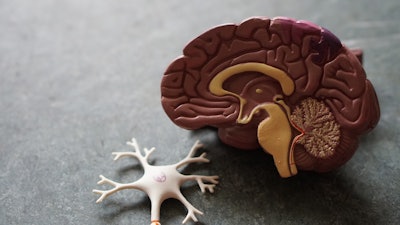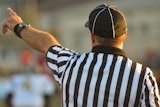
A new brain injury study by the Boston University CTE Center reports 40 percent of the brains of young athletes with contact sports experience showed signs of injury.
“We expected we would see some pathology but [were] surprised at the number of young folks who had chronic traumatic encephalopathy, or CTE,” said BU associate professor Thor Stein, as reported by Boston's WFXT.
The study, published Monday, focused on donated brains of 152 people age 30 and younger who played contact sports.
“Many of these people were amateurs. They weren’t the professional… [people] who played at high school and college sports and yet they had developed the disease,” Stein, adding it’s the length of time, not the number of hits, that determines the extent of injury.
“It’s really the years of play, the duration that you played these sports, and not so much the number of concussions — the big hits,” he said.
Every public high school in the Massachusetts Interscholastic Athletic Association is required to have an athletic trainer on the field during games, WFXT reported.
“It’s mandated for varsity football games there’s an athletic trainer on each sideline. So that’s a major change that’s happened recently,” said Amanda Randall who is the Athletic Trainer at Walpole High School, which allows only one day of contact during the football practice week.
And Walpole goes a step further, WFXT's John Monahan reported.
“I’m here for practice and game coverage to oversee to make sure athletes stay safe on and off the field,” said Randall.
Currentlly, CTE studies look only at the brains of people who have died. Stein says that recent advances in studying Alzheimer’s may be able to be applied to CTE, which could give doctors an ongoing image of any possible injuries even from a young age.





































